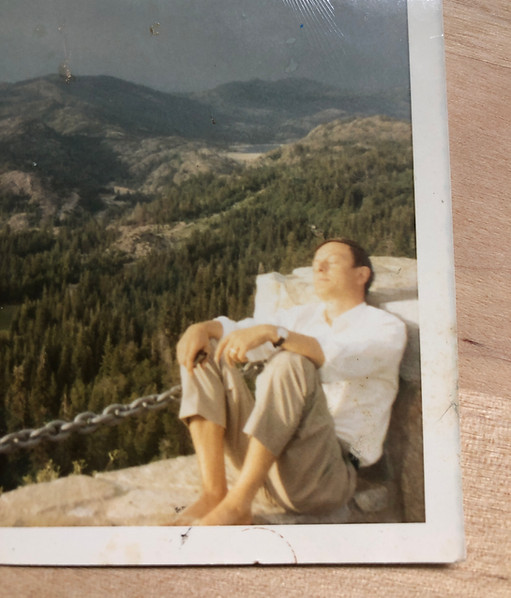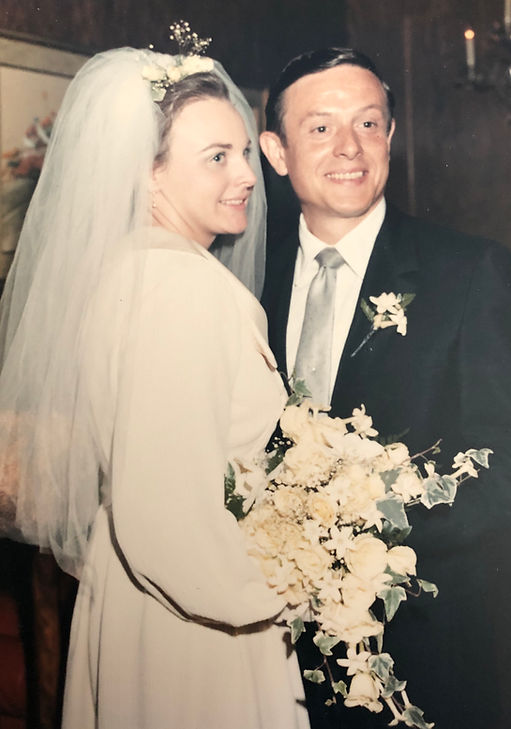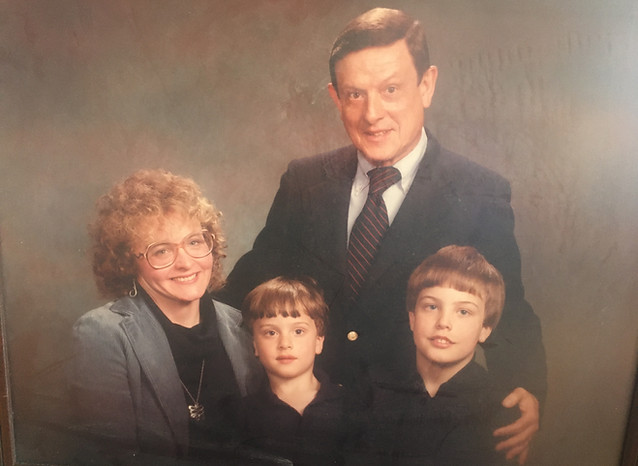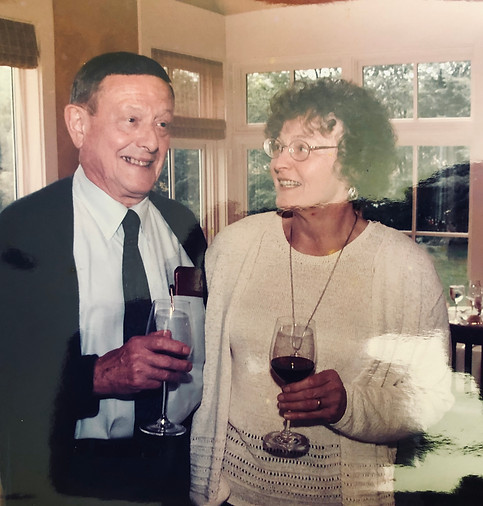

GUNTER
KLEIN
1933-2020
Gunter Erich-Peter Klein entered the world on March 9, 1933 born to Hubert and Irma in the city of Hagen located in the North Rhine-Westphalia state of Germany. The story of his life is the substance of hardship, loss, survival, adventure, growth and love. Raised in an era of scarcity and brought up in a family of rigid principles, what little Gunter had was lost in World War Two including his home and both parents. An only child, he survived the war and found companionship with his track and soccer teams. Believing that somehow and somewhere there must be more to life, Gunter Klein left Germany in his late teens driven by a life-long thirst for knowledge that would remain a hallmark of his entire career.

With a willingness to challenge any adversity placed before him, he rode a motorcycle through the Swiss Alps to Italy where he learned a new language and how to leave the ruins of war behind him. In Milan, Gunter found acceptance from warm and loving people who laughed and hugged often and were not afraid to show their emotions. His wife Suzanne would often say that it was the Italians who saved Gunter. Over the next few years, Gunter’s love of language sent him north to study English in Liverpool and to Paris to study French at the Sorbonne.


“BUT WHAT DOES THAT HAVE TO DO WITH THE PRICE OF POTATOES?”
Following the advice of the hippie poet Allen Ginsberg, with whom he talked for hours in Parisian cafes, Gunter left for the United States, bringing with him a roll of toilet paper filled with messages for Ginsberg’s friends. While immigrating to the United States, Gunter scraped together enough funds to pursue his education with a fortuitously brief career working in uranium mines and lumberjacking in Canada. These experiences may explain his proclivity to cut down trees and regrade gravel roads with nothing more than a handsaw and shovel at his beloved camp in Pemaquid, Maine.

In Chicago, he found a home along with other students from all over the world with the Platt family, where he earned his BA at Roosevelt University and a subsequent master’s degree and PhD from NYU in Political Science. Ever the scholar-athlete, Gunter took on a variety of athletic pursuits including running, fencing, and tennis. Returning to the Platt home in Chicago, Gunter met the love of his life, Suzanne, who was pursuing her studies in medicine. Prior to joining her in Boston, he revealed his flair for romance by mailing over forty boxes of books. It is important to note that upon his arrival, after suffering a sprained ankle, Gunter promptly required Sue’s medical care (and then her assistance to carry the aforementioned books up four flights of stairs).


After moving to upstate New York and eventually settling in Rochester, Sue and Gunter made Clover Street their home for almost forty years, where they raised their two sons, Eric and Ian (once more, Gunter showed great resilience enduring their adolescent years and various escapades). It was during this time that “the cabin” in Maine became much more than a vacation destination, it provided Gunter with rest, relaxation, solace, and a bit of mischief. Without fail, Gunter could be found every summer working outdoors, paddling around in his beloved Old Town canoe, fishing with his boys for Mackerel at the Co-Op, watching sunsets from his favorite spot down “at the point,” and burning brush from his lumberjacking endeavors. It was only after much discussion from friends and family, as well as several visits from the Pemaquid fire chief, that Gunter finally relented to filling out burn permits.
Following their retirements from teaching and medicine, Gunter and Suzanne moved to Seattle to spend time with their youngest son Ian and his family, while also traveling every summer to visit with their eldest son Eric and his family in Maine. This time was also marked by their study of Italian and yearly trips to Southern Italy and Sicily, highlighting a relationship of over fifty years together.
Gunter's life was marked by endearing friendships, a scholarly zest for reading, a passion for exercise, classical music, and a consummate love of good wine and Guinness. He is fondly remembered for his wit that would often challenge those around him, noted by his infamous rhetorical question “But what does that have to do with the price of potatoes?” axiom statement “But life is not black and white,” and his trademark “What, what?” which seemed to be used more frequently when asked to do chores around the house.

Gunter is survived by his loving wife Suzanne, whose enduring patience and steadfast commitment led to 49 years of marriage; his son Ian and wife Aylin, Eric and wife Dani; four grandchildren Zachary, Nikolas, Crosbie, and Emmett; brother-in-law Tom, as well as his beloved nieces Wendy, Kerri, Jennifer, Barbara, Debbie and nephew Sam.

Charities.
In honor of Gunter, the family suggests sending memorial contributions to the following charities:

Early Music Seattle
Early Music Seattle's mission is to present outstanding early music, use early music to enrich cultural heritage via education and outreach, and engage new audiences through inclusivity and openness.

Artist Trust
Your support of Artist Trust's COVID-19 relief efforts will allow Artist Trust to support Washington State artists working in all disciplines throughout this crisis, with cash grants, resources, and more.